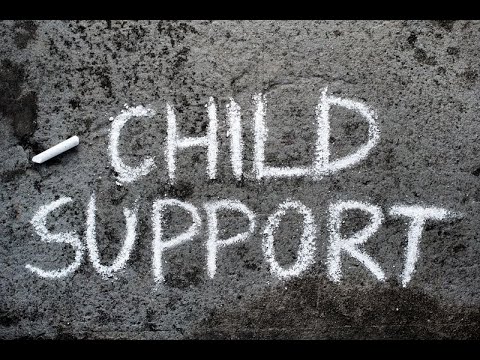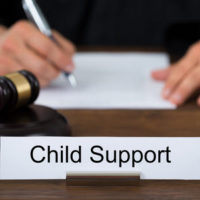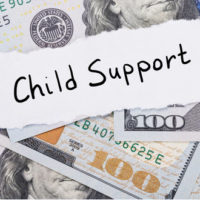
Components of Child Support Costs in North Carolina
 Today the examination will focus on the different components of child support in North Carolina. Before progressing any further, it is vital to note that the North Carolina courts will always try to act in the best interests of the child. If need be, the courts will take unorthodox actions to protect the children involved in any family dispute in North Carolina.
Today the examination will focus on the different components of child support in North Carolina. Before progressing any further, it is vital to note that the North Carolina courts will always try to act in the best interests of the child. If need be, the courts will take unorthodox actions to protect the children involved in any family dispute in North Carolina.
That being said, the North Carolina courts rely on three primary factors to determine child support: (1) gross monthly income, (2) childcare expenses and (3) insurance and healthcare expenses.
Gross Monthly Income
Under the North Carolina Child Support Guidelines, a fundamental component of child support involves the combined monthly income of both parents. North Carolina employs a table-based worksheet to determine the appropriate amount of child support.
The child support worksheets combine the total monthly income from both parents. Then the worksheets apply a multiplier for the number of children. The intersection of income and number of children represents the appropriate child support payment. Though it should be noted that the worksheet does account for the childcare as well as insurance and healthcare costs detailed in the following sections.
It is important to note that there are different worksheets for the varying types of child custody, including sole and joint custody. This ensures that the parents achieve an appropriate cost distribution to care for their children.
Childcare Expenses
Another aspect of the child support calculation in North Carolina involves childcare expenses. This category addresses the fundamental costs associated with raising a child, including but not limited to food, rent and transportation.
The childcare expenses category can also account for certain parental obligations as well. For example, if a parent has to spend money on daycare to search for a job, then they can add those costs to childcare expenses. The same can apply for money spent while the custodial parent attends school or other classes. In either case, the North Carolina courts have discretion to determine whether such costs should be included in childcare expenses.
Insurance and Healthcare Expenses
This category of child support in North Carolina centers on the costs of providing insurance and healthcare for the children involved. Expenses in this category typically include medical, dental and vision health insurance. This category also includes other healthcare costs that either parent incurs on behalf of the children involved.
Let Us Help You with Your Case
Whether you are dealing with child support, divorce or other aspects of family law, a proficient family law attorney can help you analyze important details and plan an appropriate strategy for a favorable outcome. Contact Powers Landreth PLLC in Charlotte, North Carolina for help today.
Resource:
nccourts.org/Forms/Documents/1226.pdf
Learn More
North Carolina Child Support Enforcement
 Child support is a legally mandated form of financial support issued by the court in North Carolina. This means that when a father or mother fails to pay the support that they owe, there are legal steps to take in order to procure the payments. By working closely with the Child Support Enforcement Office of North Carolina and a trusted family law attorney, you can hold the noncustodial parent accountable for their support obligation.
Child support is a legally mandated form of financial support issued by the court in North Carolina. This means that when a father or mother fails to pay the support that they owe, there are legal steps to take in order to procure the payments. By working closely with the Child Support Enforcement Office of North Carolina and a trusted family law attorney, you can hold the noncustodial parent accountable for their support obligation.
Many Options for Child Support Enforcement in Charlotte
Court ordered child support is enforced the Child Support Enforcement Office and the Support Enforcement Program of North Carolina. There are a variety of actions to take if the noncustodial parent continues to make late payments, partial payments, or refuses to pay child support altogether. The most effective method, according to North Carolina Health and Human Services, is income withholding. Income withholding goes directly after the noncustodial parent’s paycheck, from which the employer deducts a specific amount, specified by the NC Child Support Centralized Collections (NCCSCC). This option is viable even if the noncustodial parent is living out of state. Additionally, income withholding can be deducted from the following sources of income:
- Veteran’s disability benefits;
- Workers’ compensation;
- Social Security benefits; and
- Unemployment insurance benefits.
Additional options include going after the noncustodial parent’s federal and state tax refunds, claims on real or personal property, credit bureau reporting, monthly billing, or issuing a court action against the noncustodial parent, which will essentially force them to show up in court and answer to a judge directly, or else face serious penalties.
Issuing a Subpoena, Court Hearing, and Being Held in Contempt of Court
Under North Carolina law, the state of North Carolina may issue a subpoena for certain information to be provided by a noncustodial parent that may be responsible for paying child support. This information includes any “books, papers, correspondence, memoranda, agreements, or other information, documents, or records” that are relevant to:
- Child support establishment;
- Child support enforcement; and
- Paternity establishment.
Refusing to comply with a subpoena or a court order is contempt of court and can result in jail time and/or heavy fines. Additionally, you may request a court hearing. If the noncustodial parent refuses to show, or after the hearing the judge upholds the current court-ordered child support, and the noncustodial parent refuses to obey, they may be held in contempt of court. Their driver’s license may be taken away, they may be issued fines, or they may be sent to jail.
If You Are Being Denied Child Support Payments, Contact an Attorney Today
Child support is an essential tool for raising your child or children as comfortably and safely as possible as a single parent. You should not be left alone to pay for medical care, food, clothing, shelter, child care, and all the other essentials when there is another parent out there who has a legal responsibility to provide for their children. For help with child support enforcement, you need to enlist the assistance of an experienced family law attorney. Call the Charlotte, North Carolina attorneys of Powers Landreth PLLC today at 704-342-4357 for serious legal assistance.
Resources:
ncdhhs.gov/divisions/social-services/child-support-enforcement
ncleg.net/EnactedLegislation/Statutes/HTML/ByArticle/Chapter_110/Article_9.html
Learn More